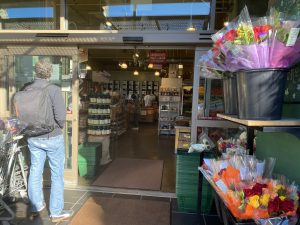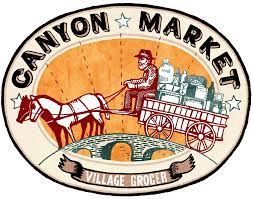 A little over 24 hours after Canyon Market was shut down by the Department of Public Health (DPH), causing anger and distress among Glen Park residents and owners Richard and Janet Tarlov, the store has reopened.
A little over 24 hours after Canyon Market was shut down by the Department of Public Health (DPH), causing anger and distress among Glen Park residents and owners Richard and Janet Tarlov, the store has reopened.
One patron had filed a complaint, precipitating the closure. Customer complaints carry a lot of power, such as a mandatory shutdown. But the Tarlovs maintain they should have been able to work through the situation.
Of necessity, Richard has become quite an expert on rodent habits and behavior. With the re-establishment of their food sources since the pandemic has subsided, there’s been an explosion of rodent populations in most major cities. They wreak havoc, chewing through expensive equipment and requiring constant cleaning and sanitizing of the premises.
The problem has been greatly exacerbated by the woman known as the Birdseed Lady, a known public nuisance. The Tarlovs have filled two large green compost bins with seeds she’s dumped all over the village. More details about this situation are in a previous post.
The day the market was closed was spent addressing the list of items cited by the health inspector, such as putting wire mesh over a gap, sealing up some holes, and cleaning and sanitizing.
The market is a relatively new building; it opened in 2006. It’s concrete and rebar, built to earthquake standards for a mixed-use building and is well maintained.
The Tarlovs were frustrated because, for example, they knew the gaps and holes didn’t lead anywhere because they were already sealed up inside the wall, according to Richard, who’d done the work himself. There are no holes on the sidewalk where rodents can get in.
“I feel like there are different standards going on,” said Richard. “I could go to another market in the area where there are fish out, unrefrigerated,” yet they are not shut down.
Glen Park does not have a health inspector assigned to the district which includes the neighborhood. It could be lack of staffing or funds; the Tarlovs aren’t sure. Inspectors are pulled from other districts to fill in for inspections and the market has not been able of late to establish working relationships with the health department. The supervising inspector has never visited the store.
Richard has been through innumerable health inspections in different counties. They all have different things they focus on from among the thousands of bullet points in the rule book. “You do learn something new each time,” he said.
Their former inspector knew the Tarlovs and understood the challenges of running a local food business. He might tell the Tarlovs to redouble efforts on a particular problem. Janet notes, “We would have called our inspector and told him we were worried about the infestation.”
Richard sees a lack of understanding about the context of the market, He wanted to address the concerns and do any amelioration on the spot. He realizes the inspectors are trained and have a job to do. “I just wish we could meet in the world of reality. They’re not listening to any of our input.”
He still doesn’t understand why DPH had to shut the store down.
Reacting to the day of the closure, Richard calls it a gut punch. “It’s hugely disappointing to not be able to serve our customers. We do so much to keep things clean and sanitary. We stayed open that whole pandemic, keeping people employed and the neighborhood fed. After all that, there was no common sense comraderie with DPH working together to fix a problem.”
Richard has been in the food industry for 40 years. He’s opened many stores and says without the depth of knowledge that he and Janet have—from consulting in the industry and working in different counties in the Bay Area–the business would not have succeeded. They didn’t have an idealized view going in, and they knew that business could be brutal.
Their vision of the market was in front of us, Richard said, looking out at the shoppers, the workers and the array of handmade food on display.
“People have been super supportive, calling and saying, ‘We’re with you.’”
